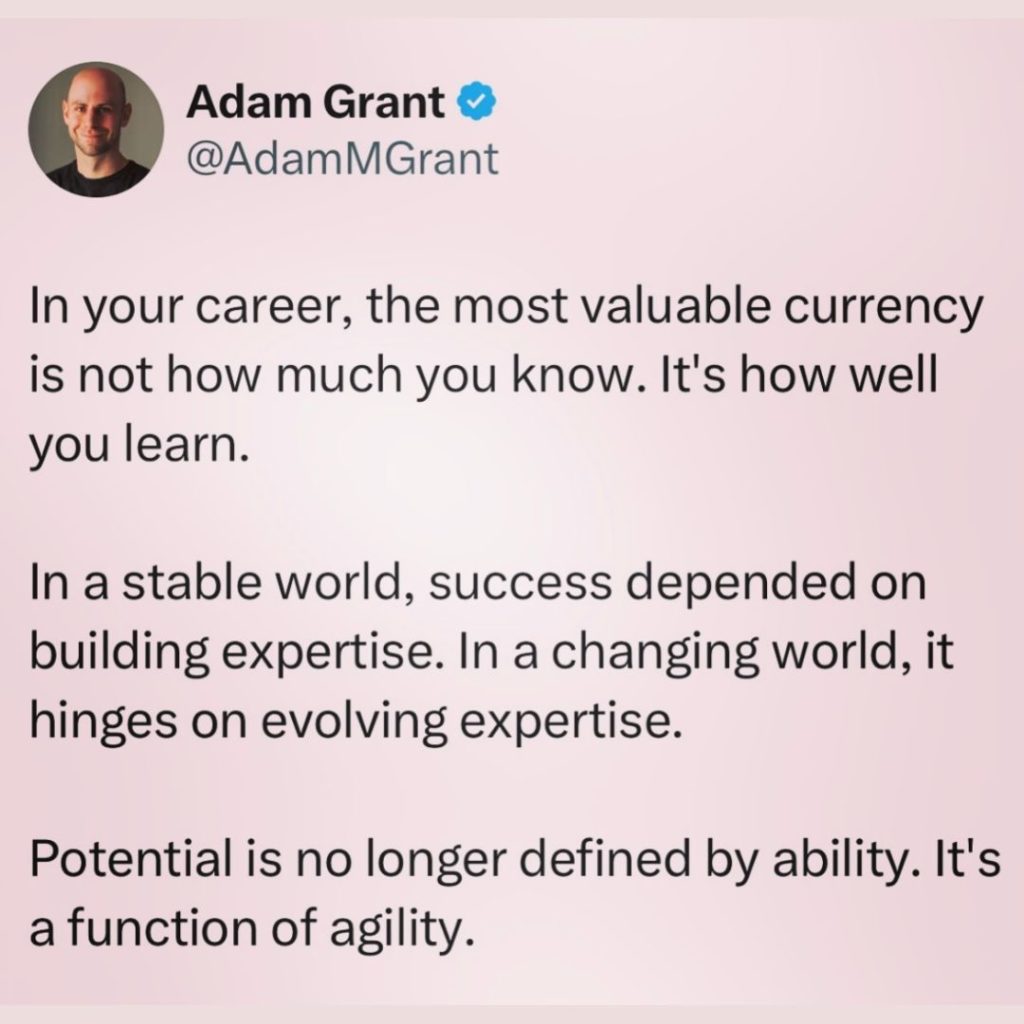In today’s fast-paced business environment, career growth isn’t always a slow, step-by-step climb. Sometimes, you can leapfrog—skip some rungs on the ladder—by anticipating what your organization needs and positioning yourself to offer it. This level of rapid advancement is usually the result of three critical factors: subject matter expertise, excellent communication skills, and the ability to see the big picture. In this post, we’ll explore how you can adopt these strategies and highlight real-life examples of professionals who have leapfrogged in their careers. We’ll also look at why it’s not enough to merely earn a PMP® certification; you need to pass the PMP exam and effectively apply those lessons in your job to drive both your own and your organization’s success.
Get PMP certified by enrolling in Master of Project Academy’s PMP courses:
The Power of Preparation: Subject Matter Expertise
Subject matter expertise means more than just knowing facts; it’s about understanding the context, depth, and best practices related to your field. Being the go-to person for complex questions or insights in your area sets you apart.
- Continuous Learning:
- Stay current by reading relevant journals, attending webinars, and enrolling in courses that enhance your knowledge. For instance, John, a seasoned IT professional, noticed the growing importance of cloud computing in his organization. He immediately took specialized courses, became certified, and demonstrated his new expertise in high-stakes projects. Within a year, he leapfrogged from a mid-level role to a managerial position that oversaw critical cloud initiatives.
- Teaching Others:
- Share your knowledge through presentations, mentoring, or thought leadership articles. Becoming a resource for your peers not only builds trust but positions you as an indispensable asset to the team.
- From PMP Class Certification to PMP Exam:
- Many project managers assume that simply taking a PMP class is enough. But deep subject matter expertise comes from fully preparing for—and passing—the PMP exam. The process forces you to dive into the principles of project management, risk assessment, stakeholder engagement, and more. Apply what you learn to real projects. This not only refines your expertise but demonstrates your drive to keep growing.
Retain your project management skills and gain new ones using our exclusive Sandbox Membership.
Communication: Bridging Gaps & Building Influence
If you have a treasure trove of expertise but can’t communicate it effectively, your growth will stall. Communication—both verbal and written—is a key skill that sets leapfroggers apart.
- Clarity in Presentations:
- Organizations appreciate individuals who can present complex ideas in a concise, digestible manner. For example, Sarah, a project coordinator in a large financial institution, realized many of her stakeholders struggled with project reports filled with jargon. She revamped her communication style by simplifying language, using visuals, and highlighting key takeaways. Her ability to translate “project management speak” into clear, actionable items caught the attention of senior executives, leading to a rapid promotion to Senior Project Manager.
- Empathy in Stakeholder Management:
- Whether you’re managing a team, presenting to the C-suite, or negotiating with vendors, tailoring your message to your audience’s needs builds trust. Practicing active listening and empathy can help you catch underlying concerns before they become major problems.
- Leveraging Communication Tools:
- Today, effective communication also includes mastering virtual collaboration platforms. Frequent, well-structured status updates or asynchronous presentations keep everyone aligned and show your capability to lead in a digital environment.
How to Engage Your Teams and Inspire Success with Storytelling?
Seeing the Big Picture: A Systems View of Organizational Challenges
One of the most underrated yet transformational skills is the ability to see the bigger picture. This goes beyond your immediate tasks; it’s about understanding how your work, team, and projects fit into the broader strategic objectives of the company.
- Systems Thinking 101:
- Every department—from finance to marketing to operations—is interrelated. A decision in one area can create ripple effects across the organization. Adopting a systems view means recognizing these connections and planning your projects accordingly.
- Identifying Strategic Value:
- Look for ways your expertise and projects can solve overarching challenges. This could mean aligning project goals with the company’s vision or proactively addressing issues that hinder strategic progress. By focusing on impact, you showcase your leadership potential and vision.
- Real-World Example:
- Priya, a project manager at a manufacturing firm, noticed production bottlenecks that were slowing down their time-to-market. Instead of merely focusing on her slice of the project, she traced the problem through multiple departments—inventory management, logistics, and sales forecasting. By collaborating with cross-functional teams and proposing an integrated system to streamline inventory tracking, she saved the company both time and money. Leadership recognized her initiative and broad perspective, offering her a Director of Operations role within just two years of joining.
How Asking “What Is My Responsibility?” Elevates Your Standing In Your Organization?
The Role of PMP in Career Leapfrogging
PMP (Project Management Professional) certification is often considered the gold standard for project managers. But merely attending a PMP class is only part of the journey. To truly leverage the PMP:
- Commit to Passing the Exam:
- The PMP exam tests your mastery of project management processes, tools, and methodologies. By thoroughly preparing and passing the exam, you prove you have a deep, validated understanding of project management principles.
- Apply PMP Principles to Real Projects:
- The true ROI of your PMP journey comes when you apply what you’ve learned: risk management, stakeholder analysis, and scope control, to name a few. These competencies go beyond theoretical knowledge, providing real-world strategies for delivering successful projects.
- Speak the Language of Business:
- PMP principles help you communicate effectively with stakeholders across different departments. Whether it’s scoping out project deliverables or aligning with corporate governance, using a standardized project management framework helps you gain credibility and trust.
How to Revolutionize Your Project Management Approach with First Principles Thinking?
Practical Steps to Leapfrog in Your Career
Ready to take that leap? Here’s a quick roadmap:
- Identify & Deepen Your Expertise:
- Choose areas that are crucial to your organization’s strategic goals. This might be a technical skill (like data analytics) or a leadership skill (like change management). Seek out certifications and advanced courses—including PMP, Agile, Six Sigma, or domain-specific programs from reputable providers like Master of Project Academy—to solidify your expertise.
- Master Communication & Influence:
- Practice communication in safe settings, such as internal brown-bag sessions or team meetings. Solicit feedback to refine how you deliver information. Focus on empathy, clarity, and alignment with your audience’s needs.
- Cultivate Big-Picture Awareness:
- Ask questions about cross-departmental dependencies. Stay updated on organizational changes—like mergers, acquisitions, or market expansions—that could affect your projects. When possible, take the lead on initiatives that span multiple teams, thereby demonstrating your ability to think systemically.
- Pass the PMP Exam & Apply the Knowledge:
- Enroll in PMP exam prep courses or bootcamps that offer comprehensive coverage of exam topics, practice tests, and hands-on scenarios. Once you’ve passed, integrate best practices from the PMBOK® Guide and other PMI standards into your daily work. Lead by example and mentor others on your team.
- Be Visible & Proactive:
- Offer to present at company meetings. Volunteer for complex projects. Propose innovative solutions that align with strategic goals. Visibility coupled with solid performance plants the seeds for leapfrog moments.
How do Project Managers Align Projects with Company Goals?

Conclusion: Rise to the Challenge
Career leapfrogging isn’t the result of luck or happenstance. It’s the culmination of focused learning, clear and impactful communication, and the ability to understand your role within the grand scheme of your organization’s objectives. By sharpening these skills—bolstered by professional milestones such as earning and applying your PMP certification—you position yourself for swift and significant progress in your career.
Remember, the best time to invest in yourself was yesterday. The second-best time is right now. Start developing the expertise, communication finesse, and big-picture perspective that will prepare you for that leap, and when opportunity knocks, you’ll be ready to soar.
Ready to accelerate your career with the PMP certification? Check out Master of Project Academy’s PMP Exam Preparation Courses and give yourself the competitive edge you deserve.
